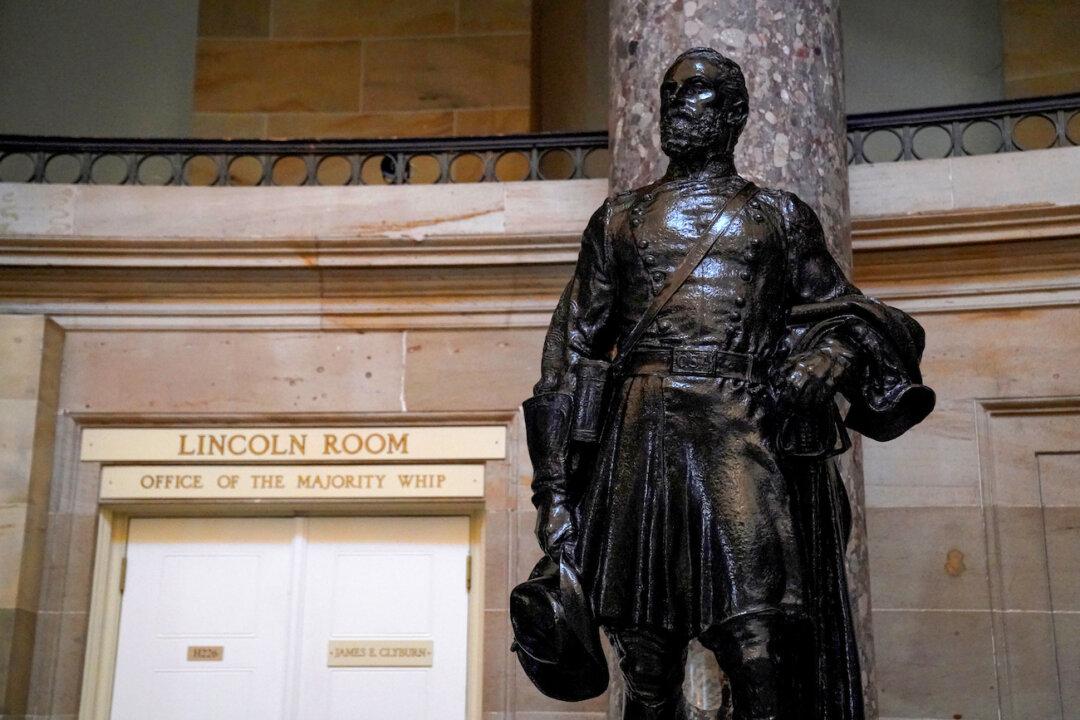The Democrat-led House of Representatives voted Tuesday to pass a bill seeking to remove confederate statues from the U.S. Capitol.

A statue of Confederate Joseph Wheeler is displayed in the U.S. Capitol in Washington, on July 23, 2020. Erin Scott/Reuters
Mimi Nguyen Ly
Reporter
|Updated:



